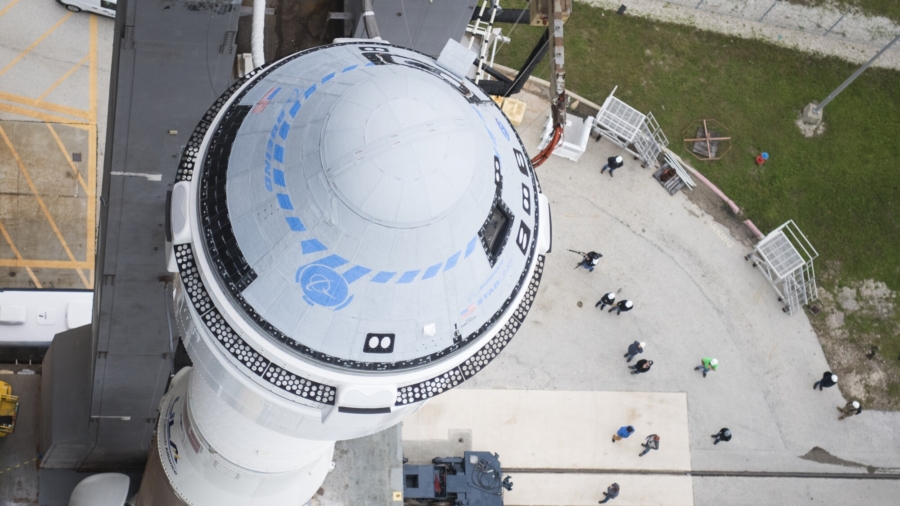Boeing on Tuesday postponed the planned launch of its CST-100 Starliner capsule from Florida’s Cape Canaveral bound for the International Space Station due to a glitch in what was to have been a crucial do-over test flight following a near-catastrophic failure during its 2019 debut.
During pre-launch preparations, Boeing engineers detected “unexpected valve position indications” in its propulsion system, Boeing said in a statement. The problem was detected during checks after electrical storms in the region, Boeing added.
“We’re disappointed with today’s outcome and the need to reschedule our Starliner launch,” said John Vollmer, the program’s manager. “Human spaceflight is a complex, precise, and unforgiving endeavor, and Boeing and NASA teams will take the time they need to ensure the safety and integrity of the spacecraft and the achievement of our mission objectives.”
The Starliner capsule loaded with supplies had been scheduled to have blasted off atop an Atlas V rocket flown by the United Launch Alliance, a partnership of Boeing and Lockheed Martin, at 1:20 p.m. EDT from Space Launch Complex-41 at Cape Canaveral Space Force Station.
The launch had been planned for last Friday but was postponed by NASA after the space station was briefly thrown out of control with seven crew members aboard, a mishap caused by the inadvertent reignition of jet thrusters on a newly docked Russian service module. Russia’s space agency blamed a software glitch.
Tuesday’s planned uncrewed mission was intended as a precursor to a closely watched crewed flight potentially to be conducted before the end of the year. It was to be a key trial for the U.S. aerospace giant after back-to-back crises—pandemic-related lockdowns that crushed demand for new planes and a safety scandal caused by two fatal 737 MAX crashes—that have damaged Boeing’s finances and engineering reputation.
Atlas V’s dual Aerojet Rocketdyne RL10A-4-2 engines were poised to send Starliner on a 113-mile (98 nautical miles/181 km) suborbital trajectory before the capsule separates and flies under its own power to the space station in a roughly 24-hour overall journey.
The Starliner capsule headlined Boeing’s efforts against billionaire entrepreneur Elon Musk’s SpaceX to be the first to return NASA astronauts to the space station from U.S. soil in nearly a decade.
But a series of software glitches during the December 2019 debut launch resulted in its failure to dock at the orbital laboratory outpost. SpaceX’s Crew Dragon has gone on to launch three crewed space station missions since 2020, with a fourth slated as early as Oct. 31, according to NASA.
Boeing has spent a year and a half correcting issues flagged during NASA reviews, part of the U.S. space agency’s strategy to ensure access to the sprawling international research satellite some 250 miles (400 km) above Earth.
NASA in 2014 awarded contracts to Boeing and SpaceX to build their own capsules that could fly American astronauts to the space station in an effort to wean the United States off its dependence on Russia’s Soyuz vehicles for rides to space following the end of NASA’s space shuttle program in 2011.
If all goes well, Boeing will bring the capsule home on Aug. 9, and then attempt the follow-on crewed mission that the company has said will take place no earlier than December.
By Eric M. Johnson

